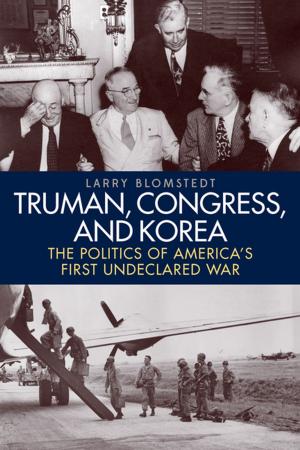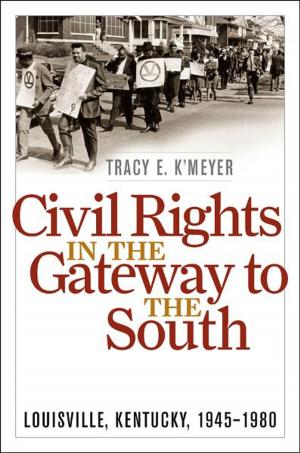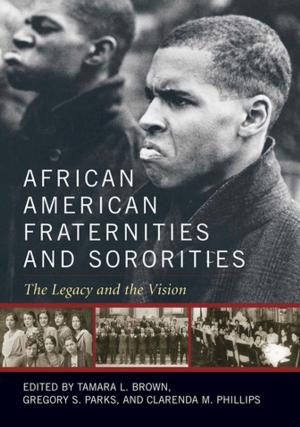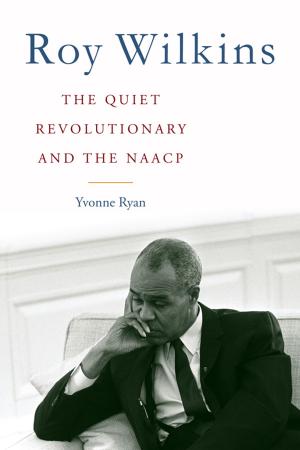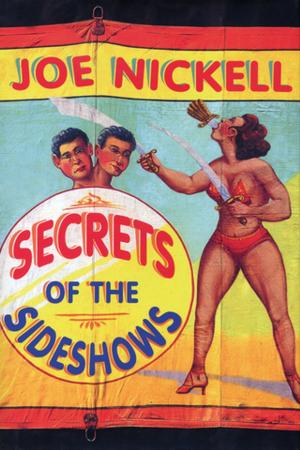Short of the Glory
The Fall and Redemption of Edward F. Prichard Jr.
Biography & Memoir, Political, Historical| Author: | Tracy Campbell | ISBN: | 9780813137445 |
| Publisher: | The University Press of Kentucky | Publication: | September 29, 2010 |
| Imprint: | The University Press of Kentucky | Language: | English |
| Author: | Tracy Campbell |
| ISBN: | 9780813137445 |
| Publisher: | The University Press of Kentucky |
| Publication: | September 29, 2010 |
| Imprint: | The University Press of Kentucky |
| Language: | English |
Arthur Schlesinger Jr. thought that he might one day become president. He was a protege of Felix Frankfurter and Fred Vinson--a political prodigy who held a series of important posts in the Roosevelt and Truman administrations. Whatever became of Edward F. Prichard, Jr., so young and brilliant and seemingly destined for glory?
Prichard was a complex man, and his story is tragically ironic. The boy from Bourbon County, Kentucky, graduated at the top of his Princeton class and cut a wide swath at Harvard Law School. He went on to clerk in the U.S. Supreme Court and become an important figure in Roosevelt's Brain Trust. Yet Prichard--known for his dazzling wit and photographic memory--fell victim to the hubris that had helped to make him great.
In 1948, he was indicted for stuffing 254 votes in a U.S. Senate race. J. Edgar Hoover, never a fan of the young genius, made sure he was prosecuted, and so many of the members of the Supreme Court were Prichard's friends that not enough justices were left to hear his appeal. So the man Roosevelt's advisors had called the boy wonder of the New Deal went to jail.
Prichard's meteoric rise and fall is essentially a Greek tragedy set on the stage of American politics. Pardoned by President Truman, Prichard spent the next twenty-five years working his way out of political exile. Gradually he became a trusted advisor to governors and legislators, though without recognition or compensation. Finally, in the 1970s and 1980s, Prichard emerged as his home state's most persuasive and eloquent voice for education reform, finally regaining the respect he had thrown away in his arrogant youth.
Arthur Schlesinger Jr. thought that he might one day become president. He was a protege of Felix Frankfurter and Fred Vinson--a political prodigy who held a series of important posts in the Roosevelt and Truman administrations. Whatever became of Edward F. Prichard, Jr., so young and brilliant and seemingly destined for glory?
Prichard was a complex man, and his story is tragically ironic. The boy from Bourbon County, Kentucky, graduated at the top of his Princeton class and cut a wide swath at Harvard Law School. He went on to clerk in the U.S. Supreme Court and become an important figure in Roosevelt's Brain Trust. Yet Prichard--known for his dazzling wit and photographic memory--fell victim to the hubris that had helped to make him great.
In 1948, he was indicted for stuffing 254 votes in a U.S. Senate race. J. Edgar Hoover, never a fan of the young genius, made sure he was prosecuted, and so many of the members of the Supreme Court were Prichard's friends that not enough justices were left to hear his appeal. So the man Roosevelt's advisors had called the boy wonder of the New Deal went to jail.
Prichard's meteoric rise and fall is essentially a Greek tragedy set on the stage of American politics. Pardoned by President Truman, Prichard spent the next twenty-five years working his way out of political exile. Gradually he became a trusted advisor to governors and legislators, though without recognition or compensation. Finally, in the 1970s and 1980s, Prichard emerged as his home state's most persuasive and eloquent voice for education reform, finally regaining the respect he had thrown away in his arrogant youth.







